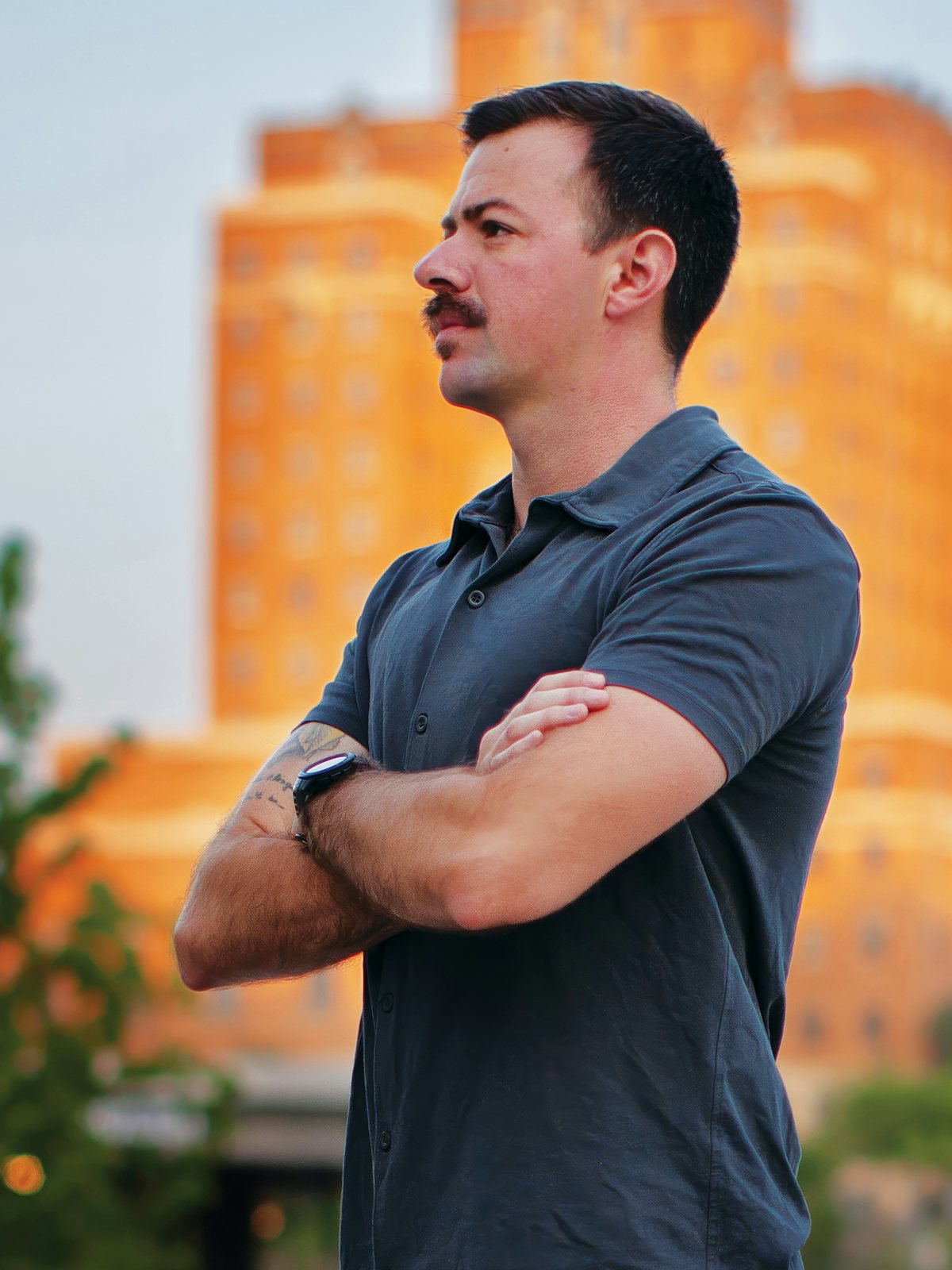Nicolas Talbott stood at attention, fists tight to his trouser seams, avoiding the eyeballs of the first sergeant asking why he’d joined the Army. “I’m here because I’m transgender,” he sounded off. “And I want to prove that people like me can do this. And frankly, can do it better than some of the people standing around me right now.”
Afterward, the other 64 trainees huddled around him in an “incredible moment of camaraderie” that Talbott says brought them together as a unit. After basic training, he would be selected as an honor graduate and earn his commission this year as a second lieutenant, 17 days before his commander in chief, Donald Trump, issued a January 27 executive order banning transgender people from military service. The following day, Talbott became lead plaintiff in Talbott v. Trump (now v. USA), the first of two cases challenging the policy headed to the Supreme Court.
If the plaintiffs succeed, more than 4,000 transgender service members may continue serving openly and honorably, as they have been since a long-standing ban was first lifted in 2016, and as transgender people now do in 18 other countries. But if Trump’s ban stands, it will legalize transgender discrimination and trigger a witch hunt that tears military units apart, forces out combat veterans with distinguished careers, and wastes billions in taxpayer dollars invested in their training. (Disclosure: I circulated an open letter opposing Trump’s policy in coordination with the legal organizations arguing Talbott’s case.)
Talbott is proof this policy is in error. Raised in Lisbon, Ohio (pop. 2,567)—a pro-Trump area where, he said, people “cared much more about the content of somebody’s character, their work ethic … and how they treated others” than about their politics—the self-proclaimed nerd-Swiftie-crime junkie grew up baling hay, milking cows, and herding sheep on his family’s homestead farm. Before he could speak, his mother tells of how he’d pull his long hair so she’d trim it short, preferred Tonka trucks to Barbie dolls, and prayed every night to wake up a boy. At 16, when he first opened up to friends and family about being transgender, “Not a single person was surprised by this ‘grand revelation.’”
Memories of 9/11, patriotism, and a desire to protect others made military service a childhood dream first deferred in 2012 when, seeking to enlist in high school, Talbott discovered that a transgender ban had been in place since 1963. When it was lifted in 2016, Talbott leaped at the chance to serve. But after a year spent working with a military recruiter to submit an enlistment package, Talbott was driving a delivery truck outside Chicago when his phone started “buzzing like crazy.” At a rest stop, he learned Trump had announced his plan to reinstate the ban via Tweet. “It was this moment of, ‘oh my gosh, I can finally live this childhood dream of mine,’” he said. “And then it’s gone.”
A legal challenge, Stockman v. Trump, quickly arose. Talbott signed on, and, as it made its way through the courts, he joined Kent State University’s ROTC program while pursuing a master’s degree in criminology. When guidelines changed again in 2019, grandfathering in existing transgender service members but banning new transgender civilians from joining, Talbott asked the ROTC commander to process his induction paperwork before the policy went into effect. The commander denied the request: “The words he used were: ‘I don’t want transgenders in my military.’”
Discrimination on top of 4 a.m. wake-up, a nearly two-hour commute to ROTC training, work as a substitute teacher, and caring for his ailing grandmother proved overwhelming. Talbott quit the program. His grandmother—who’d encouraged him to be a named plaintiff by arguing, “If you don’t believe in this enough to put your name on it and accept all that comes with it, then don’t do this at all”—died in 2020, never having seen her grandson in uniform.
After Trump’s ban was lifted in 2021, Talbott reapplied to become a military police officer and was accepted. At his swearing-in ceremony, he struggled with words he’d wanted to say for roughly a decade until the third try, when he raised his right hand and said: “I, Nicolas Kameron Talbott, do solemnly affirm that I will support and defend the Constitution of the United States …”
He now faces involuntary separation while awaiting a D.C. Circuit Court ruling. Regardless of the outcome, Talbott’s courageous resistance to Trump’s unjust order bears allegiance to the constitutional promise of liberty and justice for all—if we are willing to fight for it.




